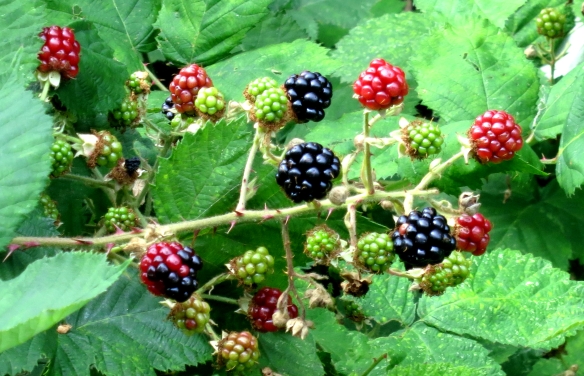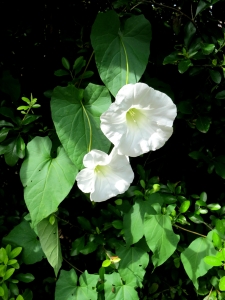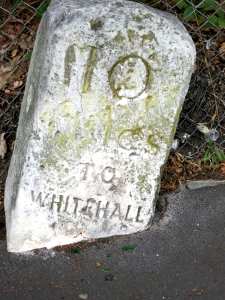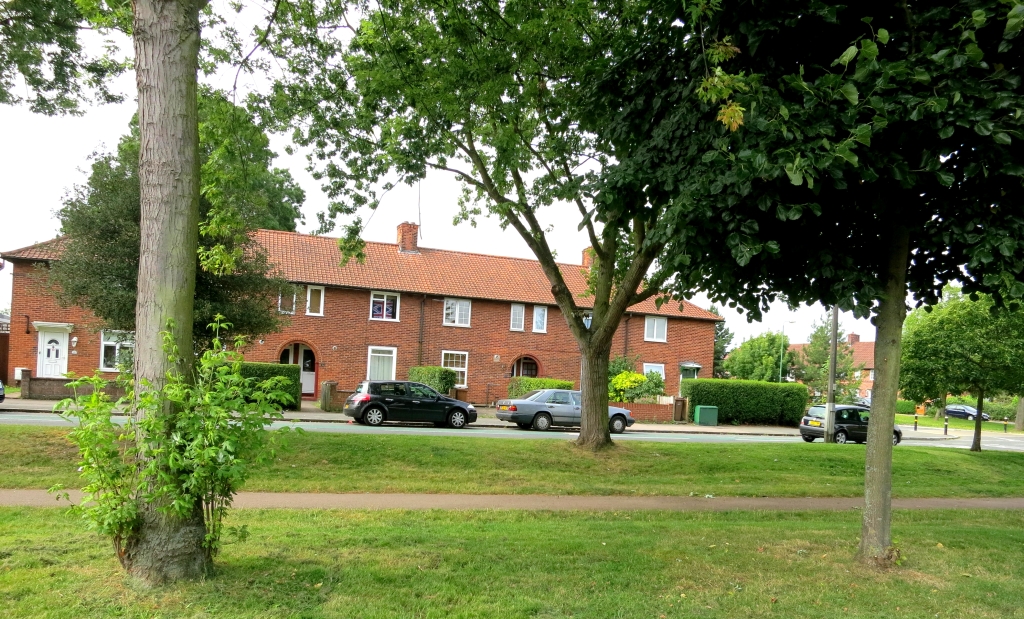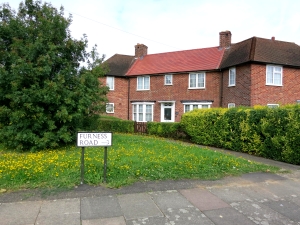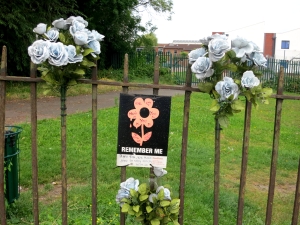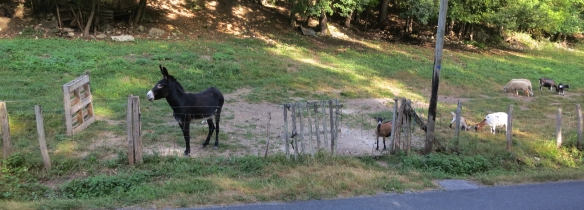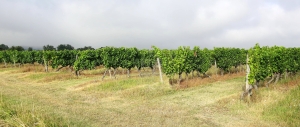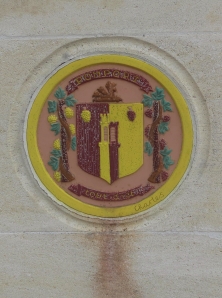With my coffee this morning I began reading another of Ann’s books, ‘Dear Dodie’, being Valerie Grove’s biography of the writer Dodie Smith.
I was grateful for the cool breeze offering relief from the strong sun occupying a clear blue sky as I began the long ascent up to Pomport to walk the loop that offers a much steeper descent from the plateau surrounding the village via a winding road past fields and through woods and back into Sigoules. 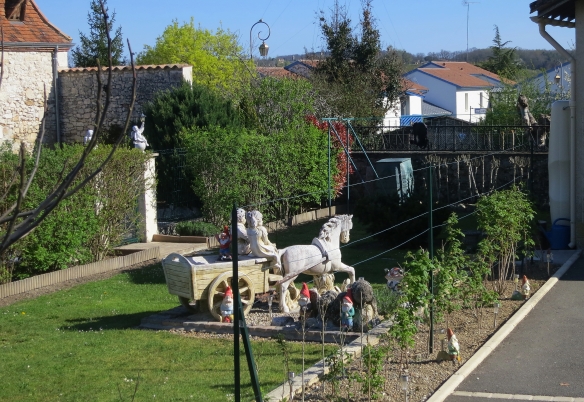 I passed the ornamental garden in rue de La Mayade at 10.20 a.m. and arrived at number 6 on the stroke of midday when my outside thermometer read 24 degrees.
I passed the ornamental garden in rue de La Mayade at 10.20 a.m. and arrived at number 6 on the stroke of midday when my outside thermometer read 24 degrees.
 The landscape sparkled. An intrepid cyclist laboured past me up the slope. As always I spared a prayer for two Frenchmen when I passed their roadside monument.
The landscape sparkled. An intrepid cyclist laboured past me up the slope. As always I spared a prayer for two Frenchmen when I passed their roadside monument.  This time I scanned the village war memorial seeking their Christian names. There they were: Robert Siron and Gabriel Lamy, who had been shot by Germans, presumably at that spot, when I was just 21 months old. I had been more fortunate in the land and time of my birth. My own father survived his time in the British Army in France. Could these two men have otherwise been alive today?
This time I scanned the village war memorial seeking their Christian names. There they were: Robert Siron and Gabriel Lamy, who had been shot by Germans, presumably at that spot, when I was just 21 months old. I had been more fortunate in the land and time of my birth. My own father survived his time in the British Army in France. Could these two men have otherwise been alive today?
The only other pedestrian I met was a woman pushing a buggy in which, dummy firmly esconced, lay a sleeping toddler. A light aircraft chugged and droned overhead. Butterflies fluttered by. A small rodent scuttled across last autumns dried fallen leaves.  Sweetly sonorous birdsong accompanied the ubiquitous golden symphony of spring flowers, not yet eclipsed either by tall grasses and sprouting nettles or by the still knotty heavily pruned vines. Far off in the woods the melody was interrupted by a discordant clamour no doubt set up by parent birds to deter an egg-collecting magpie and drown its warning clatter.
Sweetly sonorous birdsong accompanied the ubiquitous golden symphony of spring flowers, not yet eclipsed either by tall grasses and sprouting nettles or by the still knotty heavily pruned vines. Far off in the woods the melody was interrupted by a discordant clamour no doubt set up by parent birds to deter an egg-collecting magpie and drown its warning clatter.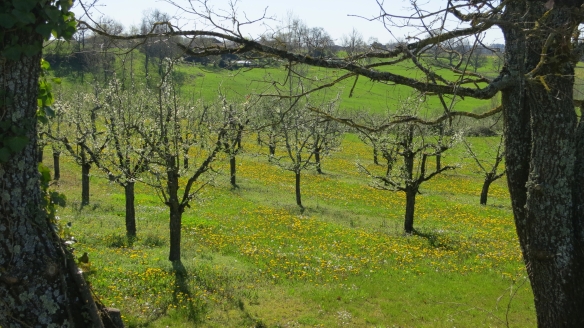 Fruit trees blossomed.
Fruit trees blossomed.
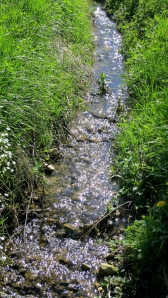 The now shallower streams glittered temptingly as I began to look forward to the refreshing glass of water I would extract from the kitchen tap on my return.
The now shallower streams glittered temptingly as I began to look forward to the refreshing glass of water I would extract from the kitchen tap on my return.
Having put Chris and Gay, two ardent genealogists, in touch with each other, I am now copied into their exchanges of e-mails. Gay, in Australia, has managed to provide my brother with documentation about the Knights that he did not have, and to discover that her daughter Holly and my son Sam each have antecedents hailing from villages four miles apart in Devon. I was delighted to be able to tell Sam’s mother-in-law, seeking information about Jean Knight, nee Hunter, that my nonagenarian mother is still very much alive. She will be able to answer any questions herself.
Today’s poem was ‘Ballade Des Dames Du Temps Jadis’ by Francois Villon (1431 -1465). It presented no problems.
Lunch was last week’s sausage casserole accompanied by a final glass of Sofiene’s gift of a superb Groupe Austoni Bariolees 2010 that Bill and I hadn’t finished a couple of nights ago after we’d polished off his Cotes du Rhone. Lemon sorbet was for afters.
Sunday in Sigoules offers a day without straining to hear and speak French. The birds were today’s relaxing companions.
